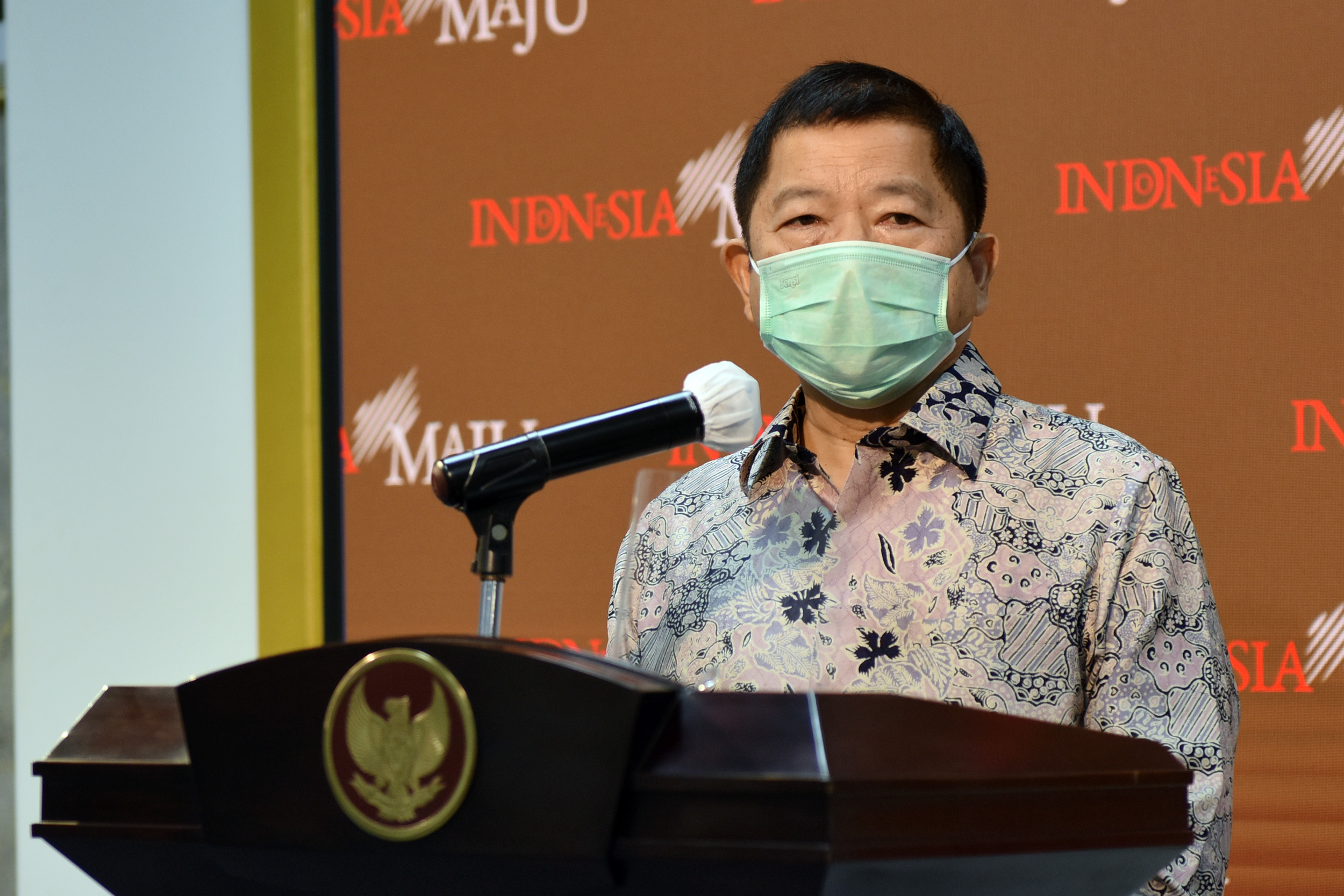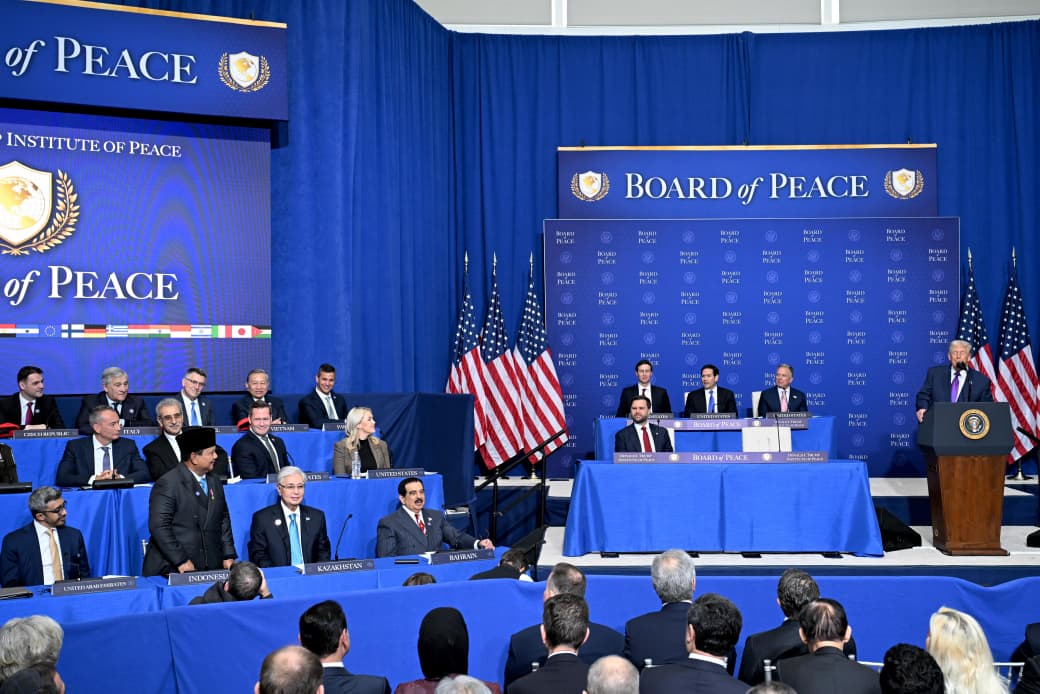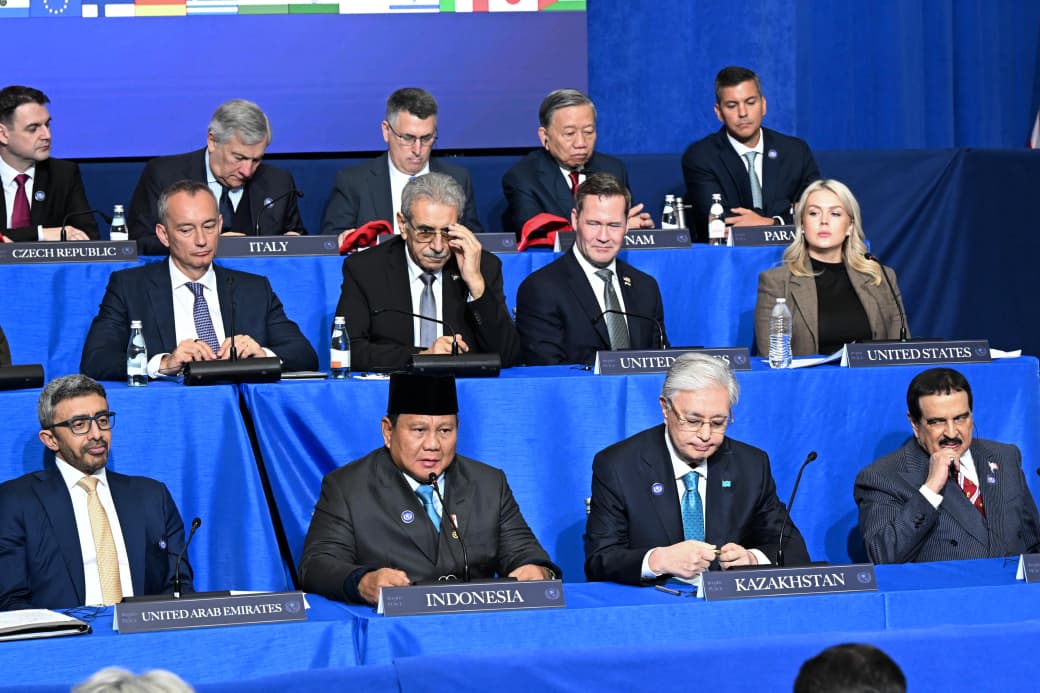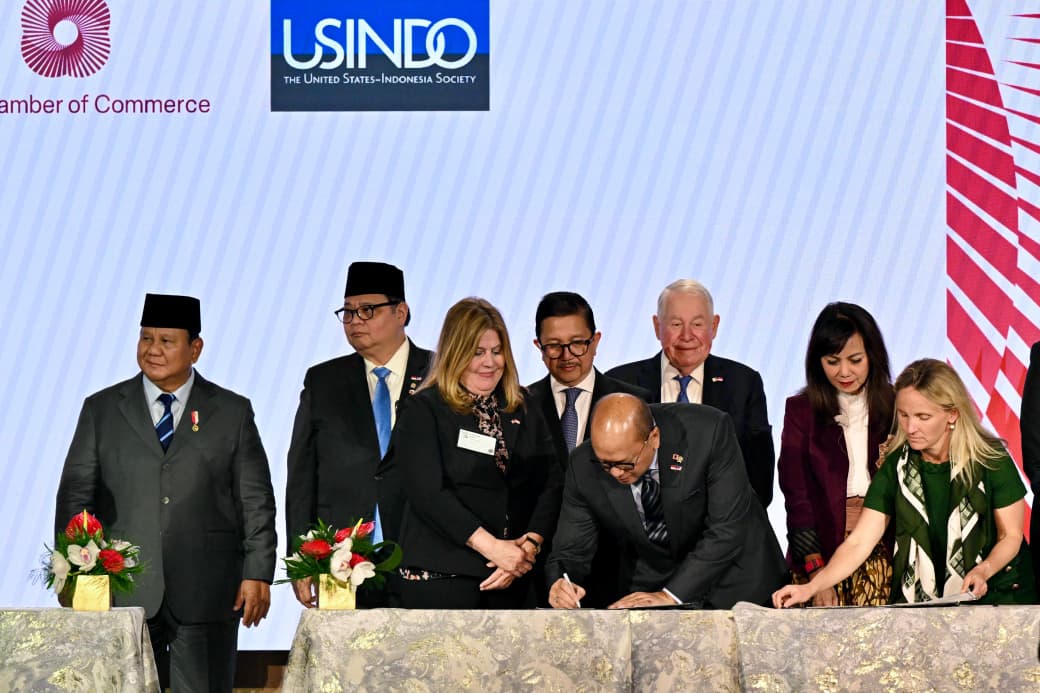President Jokowi Orders Reforms on Social Protection System

Minister of National Development Planning Suharso Monoarfa delivers press statement after attending a Limited Meeting on Reformation of Social Protection System, Tuesday (5/1), in Jakarta. (Photo: Rahmat/PR)
President Joko “Jokowi” Widodo has ordered Ministry of National Development Planning to organize massive reforms on the social protection system in Indonesia.
“The President has assigned my Ministry to restructure the social protection system,” Minister of National Development Planning / Head of the National Development Planning Agency Suharso Monoarfa said, Tuesday (5/1).
According to the Minister, the reforms which aims to reduce poverty especially at the lowest level – called extreme poverty – will be implemented in the near future in which the Ministry has made a timeframe until 2024.
“Our extreme poverty figure is around 2.5-3 percent. President Jokowi has ordered reducing the figure until zero percent by 2024,” Suharso said.
The Minister also cited a number of efforts to be made to improve social protection system, one of which is improving databases related to the distribution of social protection, namely social assistance and social security in order to know the effectiveness of its distribution.
In the meantime, the COVID-19 pandemic, he added, has taught valuable lessons for the Government, especially regarding accuracy of data in providing social assistance.
“We are aware that a lot of improvements are needed in terms of accuracy of data. Data is the most important factor in providing social protection through social assistance programs,” he said, adding that apart from data, the Government will also integrate programs spread across several ministries/agencies into more strategic programs.
“We will rearrange social assistance programs at various ministries and institutions so that they can be more effective,” he said.
Furthermore, the Minister said that in order to achieve a reduction in the poverty level at the lowest level, social assistance programs need to be focused on the target groups categorized as vulnerable and extremely poor.
In addition, the Government also provides social security contribution assistance to those groups of people classified as poor or very poor, he added.
“In the future, we will rearrange and re-design programs that have been done to be more integrated,” he said. (TGH/UN) (EST/EP)







